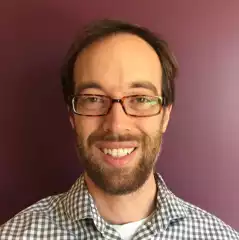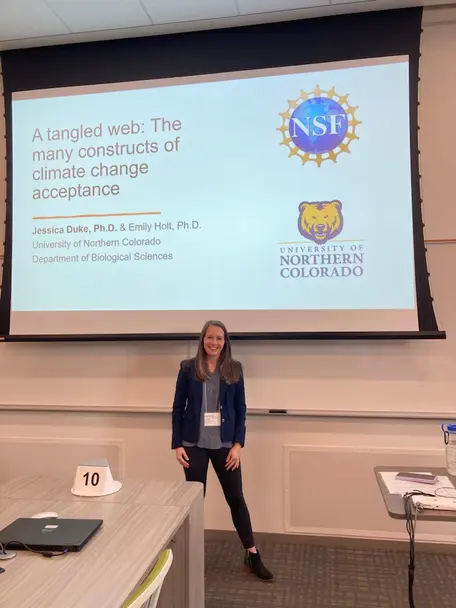Geoscience Education Research Division Officers
President - Chris Mead
Dr. Chris Mead is an Assistant Research Professor in the School of Earth and Space Exploration at Arizona State University. He holds a Ph.D. in Geological Sciences with a focus in Discipline Based Geoscience Education Research. In his current position, he conducts education research and performs evaluation for educational development projects. His areas of expertise include studying digital active learning techniques, such as virtual field trips and intelligent tutoring, and examining diversity, equity, and inclusion in higher education through institutional analysis.
Vice President - Caitlin Callahan
Treasurer - Jessica Duke
Jessica Duke is originally from Nashville, TN and received her B.S. in Biology from Middle Tennessee State University before pursuing her M.S. in Biology from Western Carolina University, which she completed in 2014. Her research at WCU focused on amphibian ecology and conservation. Jessica completed her PhD in Biology Education at the University of Northern Colorado in 2024. Her dissertation studies climate change education, specifically researching undergraduate student perceptions of climate change. Her research examines the ability of undergraduate biology students to recognize the localized effects of climate change. Currently, Jessica is a postdoctoral researcher at the University of Northern Colorado working on an NSF funded, transdisciplinary study examining undergraduate science students' acceptance of climate change. While not teaching or doing research, Jessica enjoys trail-running, paddle boarding, and hiking/camping in the beautiful mountains of Colorado with her husband, Cameron, and poodle, Nelson. Read more on Jessica's website.
Interest in NAGT: I am excited for the opportunity to serve as Treasurer for NAGT. While I am not a geoscientist, my research is transdisciplinary and seeks to better understand how undergraduate science students' perceive climate change. I am excited to meet new people in the field and learn from you all, along with supporting NAGT's mission to improve teaching, learning, and research in the field!
Secretary - Katie Boyd
Kathryn (Katie) Boyd is an Education and Outreach Associate at CIRES. She is the program manager for a climate change education project and an evaluator for multiple CIRES education projects. She conducts research in environmental education related to these roles. She holds two MS degrees in Atmospheric Science and in Education/Ecology. Her research interests include science education, outreach, and communication, specifically understanding how to build bridges between the scientific community and society through educational work.
Media Director - Vacant
Graduate Student Liaison - Kristen Foley
Kristen Foley currently works as a Graduate Student Instructor at the Mallinson Institute for Science Education, Western Michigan University. Kristen does research in Geology and Geoscience Education, working toward her MS (Geosciences) and PhD (Geoscience Education) at WMU. Kristen is a graduate of the School of Earth and Space Exploration at Arizona State University, where she spent time as both a Teaching Assistant and a Research Assistant. Her current research interests are in the digital aspects of geosciences, virtual field trips, and how they impact student learning.
Past President - Emily Scribner
Dr. Emily Scribner is a Lecturer in the Department of Environmental Engineering and Earth Sciences at Clemson University. Her research interests are spread between two realms: geoscience education and mineralogy. Her current geoscience education research involves assessing the effectiveness of virtual field camp exercises as an alternative for students who are unable to participate in in-person field exercises. Other geoscience education research she has conducted involved the development of a concept inventory, a validated assessment, that can be used to measure conceptual understanding of introductory mineralogy concepts. Her mineralogy research focuses on the rare-element pegmatites, specifically those that are thought to have been contaminated by their host rocks, resulting in the modification of their chemical signature and mineralogy through the introduction of chemical elements from the host rock. She is currently the State Representative for South Carolina within the Southeastern Section of NAGT.


![[reuse info]](/images/information_16.png)

![[creative commons]](/images/creativecommons_16.png)


